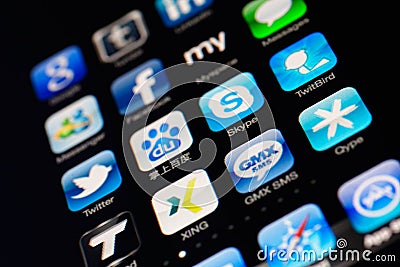The iPhone has made it big in the mobile market, with its latest releases loaded with the best of technological advances. As the device and its capabilities continue to evolve at a rapid pace, the applications specific to the iPhone are also required to keep pace with the features and technology supported by gadgets from Apple. App-stores are flooded by apps from several mobile application developers, both individuals and companies that are constantly in fierce competition to find favor with the elite iPhone users. The phone itself is quite highly priced and so are the resources that are used to build iPhone applications.
iPhone application development is a costly affair, primarily because of the cost of recruiting and training developers to deliver quality software based on evolving technology. There are however several mobile app development firms that are already actively engaged in iPhone application development. Their well-trained resources offer innovative product ideas and help identify suitable technologies that can be used to implement the required functionality. These firms also keep track of latest technology and domain specific updates and equip themselves on various business perspectives, right from interacting with clients to guiding application development, live-testing, maintenance, marketing and distribution of iPhone apps. Proficient iPhone developers handle requirements from almost all segments including business (m-commerce), games, travel, sports, social networking, media streaming, search and other utility apps. They are also expected to be adept at integrating newer apps with existing mail, voice and GPS services running on the device. In addition to technology challenges, developers also ensure that the deliverables also confirm to standards published by Apple for the product to figure in the catalog of iPhone App stores.
As early as 2008, Apple launched a software development kit (SDK) to boost as well as standardize iPhone application development, enabling programmers to build custom applications for the device. The SDK is based on the C language and can be used only on the MAC iPhone operating system. The SDK serves to create highly sophisticated applications using an integrated development environment, an interface builder to design aesthetic user interfaces and features that seamlessly blend with the phone's 3G services, and an instrument set that enables real-time testing and optimization of iPhone apps.
Given the complexity and specialized techniques required to create / distribute iPhone apps, outsourcing iPhone application development is bound to be more cost-effective for business establishments looking to foray into this sector. iPhone application development outsourcing will certainly save time and money spent on setting up infrastructure, training developers, and keeping pace with latest trends/guidelines on a regular basis. Every hardware / technology / guideline revision or upgrade is bound to impact the development process. iPhone popularity seems to be growing despite its high cost, and in turn iPhone app development too is set to grow rapidly in 2012. Growing business requirements, use of personal devices for corporate / official purposes, multi-tasking and critical timelines are a few major factors that drive the use of Smartphone, especially the iPhone, even though entertainment and games too, to some extent, influence the market. Unique applications that help iPhone users to meet their needs, and developers/ business houses creating them are bound to gain prominence in 2012.
For More Info :
iPhone application development is a costly affair, primarily because of the cost of recruiting and training developers to deliver quality software based on evolving technology. There are however several mobile app development firms that are already actively engaged in iPhone application development. Their well-trained resources offer innovative product ideas and help identify suitable technologies that can be used to implement the required functionality. These firms also keep track of latest technology and domain specific updates and equip themselves on various business perspectives, right from interacting with clients to guiding application development, live-testing, maintenance, marketing and distribution of iPhone apps. Proficient iPhone developers handle requirements from almost all segments including business (m-commerce), games, travel, sports, social networking, media streaming, search and other utility apps. They are also expected to be adept at integrating newer apps with existing mail, voice and GPS services running on the device. In addition to technology challenges, developers also ensure that the deliverables also confirm to standards published by Apple for the product to figure in the catalog of iPhone App stores.
As early as 2008, Apple launched a software development kit (SDK) to boost as well as standardize iPhone application development, enabling programmers to build custom applications for the device. The SDK is based on the C language and can be used only on the MAC iPhone operating system. The SDK serves to create highly sophisticated applications using an integrated development environment, an interface builder to design aesthetic user interfaces and features that seamlessly blend with the phone's 3G services, and an instrument set that enables real-time testing and optimization of iPhone apps.
Given the complexity and specialized techniques required to create / distribute iPhone apps, outsourcing iPhone application development is bound to be more cost-effective for business establishments looking to foray into this sector. iPhone application development outsourcing will certainly save time and money spent on setting up infrastructure, training developers, and keeping pace with latest trends/guidelines on a regular basis. Every hardware / technology / guideline revision or upgrade is bound to impact the development process. iPhone popularity seems to be growing despite its high cost, and in turn iPhone app development too is set to grow rapidly in 2012. Growing business requirements, use of personal devices for corporate / official purposes, multi-tasking and critical timelines are a few major factors that drive the use of Smartphone, especially the iPhone, even though entertainment and games too, to some extent, influence the market. Unique applications that help iPhone users to meet their needs, and developers/ business houses creating them are bound to gain prominence in 2012.
For More Info :









